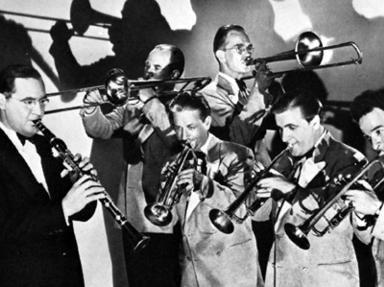Quiz Answer Key and Fun Facts
1. Arguably the most famous 20th-century American lyricist, he enjoyed a fruitful collaboration with another member of his family. Who wrote...
'The way you hold your knife,
The way we danced till three,
The way you changed my life...'?
2. This classic Tin Pan Alley lyricist wrote the words of innumerable hits, but probably the best-known today are 'Sometimes I wonder why I spend
The lonely nights dreaming of a song...' Who wrote those beautiful words?
3. This composer-lyricist wrote a cheeky little duet to perform with his wife at their anniversary party. She was really angry when he sold the song to MGM later on, but probably cheered up when it won him an Oscar for Best Original Song. Who wrote...
'So really I'd better scurry
(Beautiful please don't hurry)
But maybe just a half a drink more
(Put some records on while I pour)...'?
4. You can't have a quiz about lyrics in English without mentioning the man who started it all. The words he penned here are just as fresh as when they were written, more than than a hundred and thirty years ago. Who wrote...
'To sit in solemn silence in a dull, dark dock,
In a pestilential prison, with a life-long lock,
Awaiting the sensation of a short, sharp shock,
From a cheap and chippy chopper on a big black block!'
5. Who was the witty, soignee and ineffably cool composer/lyricist who wrote...
'You're the purple light
Of a summer night in Spain,
You're the National Gallery
You're Garbo's salary,
You're cellophane...'?
6. This versatile Englishman was first an actor, then a playwright and then a composer and lyricist. Who wrote these lovely lines?
'Though my world may go awry, in my heart 'twill ever lie,
Just the echo of a sigh, goodbye.'
7. This woman was one of the very, very, very few female A-list lyricists. Although she must have met with some serious setbacks, she wrote
'...nothing's impossible, I've found for when my chin is on the ground,
I pick myself up, dust myself off, and start all over again...' Who was she?
8. The movie is 'The Bandwagon' (1953) and we're watching Fred Astaire singing this wonderful song and dancing with Cyd Charisse. Arthur Schwartz wrote the music, but who wrote these haunting lyrics?
'We're waltzing in the wonder of why we're here,
Time hurries by, we're here
And gone...'
9. This lyricist met his long-time collaborator in college and together they went on to write over 20 musicals, out of which came hits like 'Blue Moon' and 'The Lady is a Tramp'. Who asked these wistful questions?
'Is your figure less than Greek,
Is your mouth a little weak,
When you open it to speak, are you smart?'
10. In August of 1960, the lights on Broadway and in London's West End went out for one minute. They weren't honoring the passing of a composer or a performer, but of a writer. His words stretched from
'Fish gotta swim, birds gotta fly,
I gotta love one man till I die...'
all the way to
'Blossom on snow may you bloom and grow...'. Who was he?
Source: Author
annaheldfan
This quiz was reviewed by FunTrivia editor
agony before going online.
Any errors found in FunTrivia content are routinely corrected through our feedback system.
